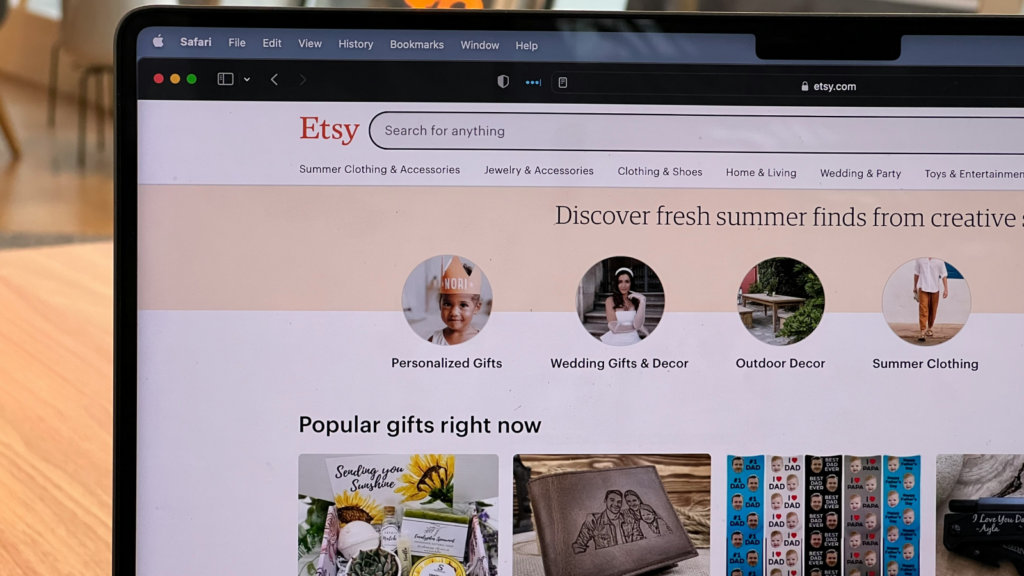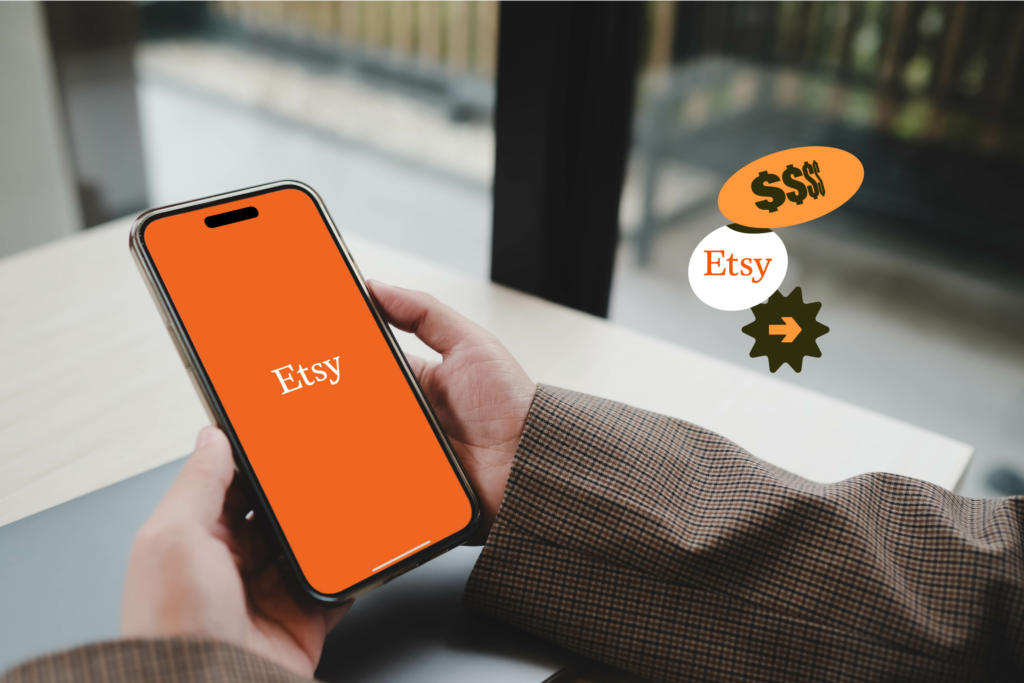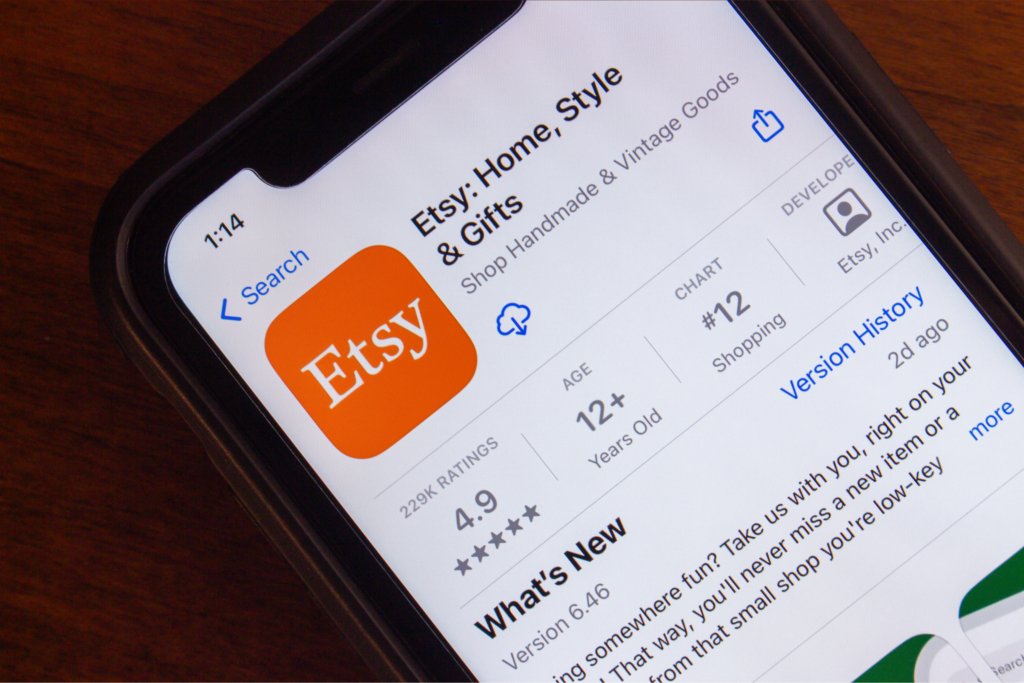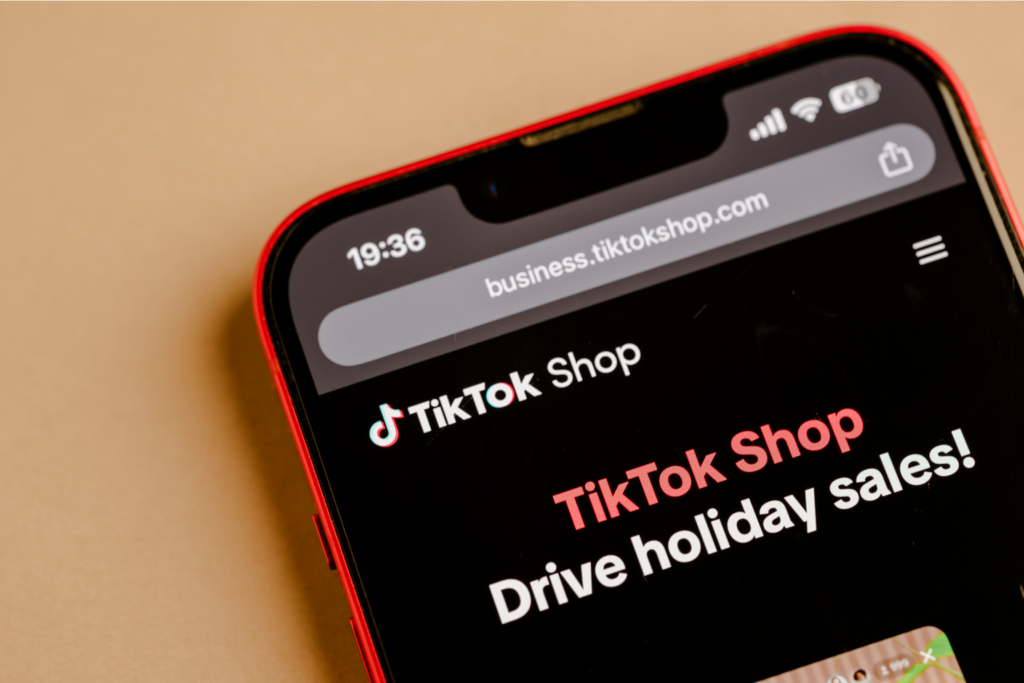Sell custom products with Printify
Anyone can sell on Etsy – it’s the go-to marketplace for crafts, supplies, vintage goods, and small business products. But before you start selling, there are some legal considerations to keep in mind.
Do you need a business license to sell on Etsy? That depends.
License requirements vary based on your location, tax laws, and business setup. If you’re selling for profit, you may need a business operation license to stay compliant.
Is a business license required to sell on Etsy?
Etsy doesn’t require a business license itself, but your local government might – especially if you’re selling for profit. Always check state and local laws.
What is a business license?

A business license is a permit that lets you legally operate and sell under local tax laws. It confirms that your business is recognized by the government and follows necessary regulations.
So, do you have to have a business license to sell on Etsy? The answer depends on where you operate. Once you learn how to sell on Etsy and start making a steady profit, you may need a business license to comply with local government regulations – such as remitting sales tax or registering an occupation permit for a home-based business. Rules depend on your local jurisdiction.
Not all local regulatory authorities have the same business license requirements, so it’s important to research your local taxing authorities to determine your case and its costs. Note that this is not legal advice, so consulting a tax expert is always a good idea.
However, beyond legal requirements, an Etsy business license, a dedicated bank account, and a registered business structure can reduce personal risk and minimize online marketplace expenses from applicable tax advantages and deductions.
Etsy fees explained – How much does Etsy take per sale?
What business licenses are required to run an Etsy store?

Before you sell items online, research all the legal requirements for your Etsy shop. Depending on your business activities, location, and the types of products you sell – especially food, health, or handmade items – you may need specific permits from your local government.
Your business structure also affects licensing requirements:
- Sole proprietorship – The easiest setup, but it doesn’t protect your personal assets. Some states require a business license or sales tax permit.
- Limited Liability Company (LLC) – Separates personal and business finances. May need an Etsy business license, EIN, and a business bank account.
- Partnership – Similar to a sole proprietorship but with multiple owners. Requires a business license and EIN.
- Corporation – More complex but ideal for larger businesses. Requires multiple business licenses and tax registrations.
Check your state’s Secretary of State website, county clerk’s office, or other relevant government agencies that manage business operations. Applying for a business license when selling online may include fees, depending on your applicable state sales tax laws.
Here are four common business licenses and other legal considerations that may apply:
Business operation license
Many Etsy sellers need a business operation license to meet local government requirements. Whether you need a business license to sell on Etsy depends on your business structure, location, and the type of products you sell.
Operating a business online is licensed by either municipal and county requirements, state ordinances, or federal laws. Be sure to contact your local taxing authority or Small Business Administration (SBA) to follow the steps to legally register your Etsy shop.
Federal level: The US federal government doesn’t require a business license just for selling on Etsy, but you may need one on a federal level depending on your business structure (e.g., LLC, corporation), your sales volume, or the type of products you sell (e.g., food, cosmetics).
State level: Some states require a business license for any online business, while others only require a seller’s permit to collect sales tax on physical and digital products. For example:
- California requires a seller’s permit regardless of income.
- Oklahoma mandates a permit if annual sales exceed $10,000.
- Alaska, Delaware, Montana, New Hampshire, and Oregon don’t charge state sales tax, but local rules may still apply.
Local level (county/city): Many cities and counties require a business operation license to pay taxes, including for those selling on online marketplaces like Etsy. This varies widely, so check with your local government or county clerk’s office.
A license to operate and sell typically costs between $50-$100 per year. Online sellers should also consider opening a business bank account to separate finances and simplify tax reporting.
Employer Identification Number
An Employer Identification Number (EIN) is a tax ID the IRSuses for business reporting, but not all Etsy sellers need one. If your Etsy business is registered as a sole proprietorship, you typically report earnings on your personal tax return, using your own assets for liability.
As a sole proprietor, an EIN is not required.
However, you’ll face requirements if you register your Etsy shop as a Limited Liability Company (LLC) or a Partnership. An LLC separates your business model from your personal finances, which can protect against business debts and award eligibility for business insurance.
As an LLC or a Partnership business, you will need an EIN.
If you sell on Etsy and plan to scale, getting an EIN will make it easier to open a business bank account, apply for a business license to sell, and meet legal requirements. Some states require an EIN to obtain an Etsy business license and comply with licensing requirements.
Home occupation permit
If you run an Etsy business from home, you may need a business license, otherwise called a home occupation permit. This requirement varies by state and city, so check with your local government before selling.
Many areas regulate home-based businesses so they don’t disrupt residential neighborhoods. Home occupation permits may be required if your business:
- Uses a certain percentage of your home for operations.
- Involves regular shipments or customer visits.
- Requires special equipment beyond typical household tools.
Some states may also require additional business licenses or permits, especially if you sell food or other regulated products. If your city or county enforces zoning laws, you may need to apply for a business license to sell from your home.
Seller’s permit
Some states require a seller’s permit to collect sales tax. This permit registers your business with the state and is typically necessary for selling taxable goods. Whether you need a business license or a seller’s permit depends on your location and the type of products you sell.
Some states base this requirement on sales volume or gross income:
- Oklahoma requires a seller’s permit if your store earns more than $10,000 per year.
- California requires a seller’s permit for all sellers, regardless of income.
Five states – New Hampshire, Oregon, Alaska, Montana, and Delaware – don’t charge state sales tax, so they don’t require a seller’s permit at the state level. Local laws may still apply, so check for any local licensing requirements before you start selling.
The type of products you sell can also affect licensing. Craft supplies and digital products usually have fewer restrictions, but if you sell food or health-related items, you may need additional permits, which you should check with your local health department.
How to apply for a business license

Here, we’ll outline a general process for registering your business. However, we’re in no way the sole authority for business licensing rules and regulations.
Research your specific case through the Small Business Administration and government institutions to ensure everything is in order, from local regulations to remitting sales taxes. Also, consider other optional opportunities, such as obtaining small business insurance.
After learning about the business license needed, continue with the following steps:
- Determine business model – Register as a sole proprietorship, partnership, Limited Liability Company (LLC), or corporation. Note that a sole proprietorship will risk your own assets and income tax. You’ll need an Employer Identification Number as an LLC.
- Register business name – Register a Doing Business As certificate if necessary.
- Apply for additional licenses or permits – See if you need to apply for a home occupation permit, a seller’s permit, or collect state sales tax on your items and other regional requirements. Follow the business license application process closely.
For a more in-depth article, check out our guide on how to get a business license. Use Etsy’s Help Center for important details specific to your store page and its sales tax policies.
Start your Etsy print-on-demand business today!
Are any additional licenses required?
Rules for digital and physical products vary by state, but most regions apply Etsy sales tax only to physical goods. Even if you sell digital, check state laws to avoid unexpected tax obligations.
When running an Etsy shop, you may need additional registrations beyond a standard business license. These help protect your business and keep it legally compliant and may include:
DBA certificate (Doing Business As)
If your Etsy seller name differs from your legal business name, a DBA certificate registers it with your state or county. This is required in some locations to operate under a brand name.
Trademark registration
If you want exclusive rights to your business name, logo, or brand elements, consider trademark registration. This prevents others from using them and helps build a legitimate business.
Is it possible to sell on Etsy without a business license?

You don’t need a business license to sell on the Etsy marketplace, but there are always exceptions. The local laws where your business is located may have permit requirements for specific business activities and structures.
If you’re selling as a creative hobby, you’re in the clear, but a for-profit business has to comply with government regulations and IRS tax laws. Whenever you’re maintaining consistent sales revenue, you’re running a for-profit business and will at least need a business operating license.
While it’s possible to sell on Etsy without a license, applying for a business permit is much easier than proving to the IRS that you’re only making money as a hobby.
Starting an Etsy store? Start with Printify

Now that you know the legal requirements for running an Etsy shop, it’s time to focus on growing your business. The best and easiest way to start is with Printify’s automated production service – sell custom products without worrying about inventory, product fulfillment, or shipping.
Printify is a leading print-on-demand platform that connects Etsy sellers with trusted Print Providers worldwide. Whether you’re designing apparel, home decor, or accessories, Printify lets you create and sell products with no upfront investment or order minimums.
1. Sign up for Printify
Create an account and access our print-on-demand services for free.
2. Choose products
Select from over 1,300 products in our Catalog, including t-shirts, mugs, and accessories.
3. Add your designs
Use our Product Creator to easily upload your artwork or create designs from scratch.
4. Connect to Etsy
Link your Etsy shop and publish your products in minutes through our partnered integration.
5. Start selling
When a customer buys from your shop, Printify automatically fulfills the order
Check out our Help page for more payment, billing, and tax resources. We also offer guides and articles to help you make informed choices, like our Etsy vs eBay sales channel review, how to integrate Printify with Etsy, and 90 profitable Etsy shop ideas.
FAQ
Etsy doesn’t require a business license, but your local government might. If your state or city requires one and you don’t have it, you or your business could face fines or tax issues. Check your local licensing requirements before you start selling.
It depends on where you live and what you sell. Some sellers need a business license, a seller’s permit to collect sales tax, or a home occupation permit if working from home. If you sell food or health products, additional permits may apply.
No, you don’t need an LLC to sell on Etsy. Most sellers operate as sole proprietors by default. However, an LLC can protect your personal assets and may offer tax advantages.
If you sell regularly for profit, the IRS considers it a business. This means you may need to pay taxes on business income and comply with business license requirements in your area. You may not require registration if you sell handmade goods or other items rarely and as a hobby.
If you’re a sole proprietor, you can usually use your personal tax ID (Social Security Number) for tax reporting. If you register as an LLC or hire employees, you may need an Employer Identification Number (EIN).
Licenses in place
No matter the size of your business, operating through legal channels is essential. So, do you need a license to sell on Etsy? Some sellers operate as hobbyists and may not require one, but if you’re looking to build and maintain a profitable online business, proper registration is necessary.
Before asking yourself, “Do I need a business license to sell on Etsy?”, consider your business structure and research relevant laws through official government websites to avoid legal issues. Whether you need a license now or later, setting up your Etsy shop correctly will save time and effort as your business grows.
Finally, partner with Printify to scale your Etsy business. A legal business structure combined with Print on Demand can be your solution to running a successful business and growing income.












